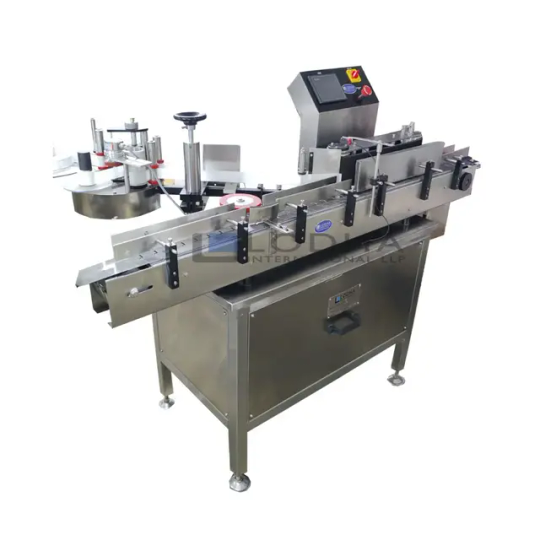#AutomotiveLabelingMachine
Explore tagged Tumblr posts
Text
Automotive Labeling Machine Market Drivers Fueling Demand Across Evolving Vehicle Manufacturing Ecosystem
The automotive labeling machine market is experiencing notable growth, driven by a confluence of technological advancements, stringent regulatory requirements, and increasing automotive production worldwide. Labeling plays a crucial role in ensuring compliance, traceability, safety, and branding across all stages of vehicle manufacturing and logistics. As the automotive sector embraces automation and smart manufacturing practices, labeling technologies are evolving to match the speed, precision, and efficiency demanded by modern production lines.

One of the primary drivers of this market is the accelerating pace of vehicle manufacturing, particularly in emerging economies. Countries like China, India, Brazil, and Mexico are becoming significant automotive hubs due to favorable economic policies, increasing demand, and cost-efficient labor. As manufacturers scale operations, the need for reliable and high-speed labeling machines becomes more evident to maintain production efficiency and ensure seamless integration within the assembly process.
Stringent regulatory compliance is another pivotal driver. Automotive components must comply with various national and international standards for safety, quality, and environmental impact. Labels with detailed specifications, serial numbers, barcodes, and QR codes are essential to meet these regulations. Government mandates, such as those related to emissions, safety warnings, and electronic vehicle components, require accurate and tamper-proof labeling—further boosting demand for advanced labeling equipment.
Technological innovation in labeling machines is also significantly influencing market growth. Automation, robotics, and the integration of AI and IoT are transforming labeling machines into intelligent systems. These smart machines can detect errors in real time, adjust settings dynamically, and operate with minimal human intervention. This reduces downtime, improves accuracy, and supports Industry 4.0 initiatives within automotive manufacturing environments.
The rise in electric vehicles (EVs) is another emerging driver. EVs require distinct labeling for high-voltage components, battery systems, and software configurations. These labels are crucial for safety and maintenance purposes and must withstand extreme conditions. As EV adoption grows, labeling needs become more complex and specialized, leading to increased demand for versatile and high-performance labeling machines tailored to this segment.
In addition, supply chain transparency and inventory management are becoming vital in the automotive industry. Labels that include RFID tags and scannable codes enable better tracking of parts and components throughout the production and distribution cycle. This not only ensures better quality control but also improves recall management, warehouse logistics, and overall operational efficiency.
The aftermarket sector also contributes to the market drivers. As vehicles require regular maintenance and part replacements, accurate labeling of aftermarket parts becomes essential for compatibility and performance. The demand for durable, clear, and informative labels in the spare parts industry propels the need for advanced labeling solutions even beyond the initial vehicle production stage.
Furthermore, sustainability trends are prompting automakers to choose eco-friendly labeling materials and processes. Labeling machine manufacturers are responding by developing equipment that supports recyclable labels, reduces waste, and uses energy-efficient technologies. This aligns with global environmental goals and corporate responsibility initiatives within the automotive industry.
Lastly, customization and branding are becoming increasingly important in a competitive automotive market. Automakers use labels not just for compliance but also for aesthetic branding and consumer communication. High-resolution printing, multiple label formats, and flexibility in design have become essential features in modern labeling machines, driven by growing demand for brand differentiation and product personalization.
In summary, the automotive labeling machine market is being driven by multiple interlinked factors including global vehicle production, compliance regulations, technological innovation, and sustainability. As the automotive sector evolves toward smarter, greener, and more efficient manufacturing processes, labeling machines will continue to play a critical role in supporting this transformation. Companies investing in next-generation labeling technologies are poised to gain a competitive edge in both OEM and aftermarket segments, shaping the future of automotive production and supply chains.
#AutomotiveLabelingMachine#LabelingTechnology#AutomotiveManufacturing#SmartManufacturing#AutoIndustryTrends
0 notes